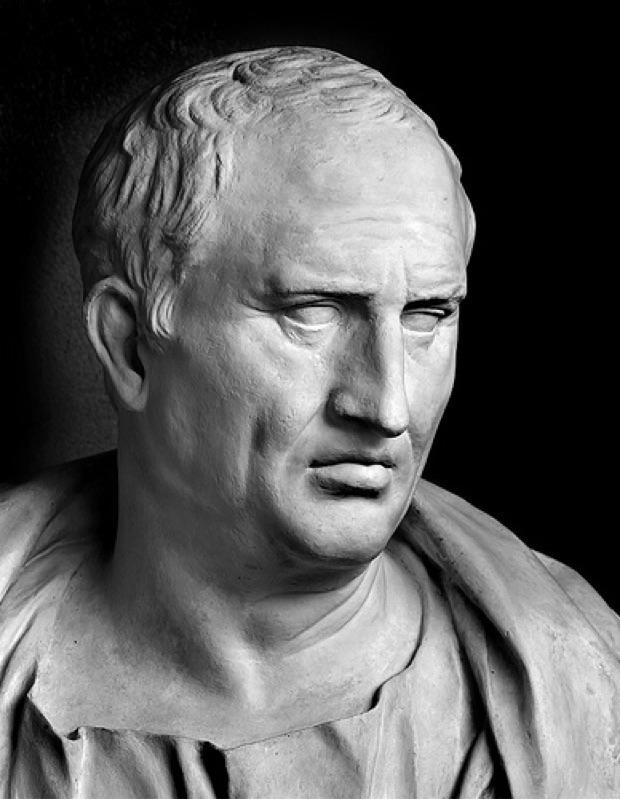If Something’s Out Of Our Control, Should We Still Worry About It?
Curated from: getpocket.com
Ideas, facts & insights covering these topics:
9 ideas
·1.26K reads
10
Explore the World's Best Ideas
Join today and uncover 100+ curated journeys from 50+ topics. Unlock access to our mobile app with extensive features.
An Ancient Philosophical Idea: “The Dichotomy Of Control”
“Some things are within our power, while others are not,” wrote Epictetus, the Greek Stoic, in a line we’d be justified in dismissing as obvious, if it weren’t for the fact that we ignore its ramifications every day, and suffer as a result. In every situation, there are things we can control and things we can’t, and struggling to control the latter is a recipe for anxiety and stress. “Partial control”, like the kind we have, say, over our 3 year-old’s behaviour, can be broken down into two: we usually have total control over what we say or do; and none, technically, over how he or she reacts.
16
257 reads
An Idea Thats Is Echoed And An Idea That Resonates
It’s an idea that’s echoed widely elsewhere, for example in the Serenity Prayer, associated with Alcoholics Anonymous, and in an observation with Buddhist origins: if a problem can be fixed, there’s no need to worry about it; and if it can’t be fixed, well, why bother worrying?
19
225 reads
An Idea With An If-Then Hypothesis
Which is fine so far as it goes: it surely is true that if we could manage never to fret about things we can’t affect, then life would proceed serenely. But it strikes as a major weakness of Stoicism – at least in its rediscovered, newly fashionable form – to assume that seeing the truth in an insight like this can bring peace of mind by itself. Among the many things we can’t control, it turns out, are our own emotions.
14
172 reads
Sigmund Freud Against The Stoics
What Sigmund Freud and his successors brought to psychology was the understanding that conscious thought might be only a tiny sliver of what’s going on in the mind as a whole. So if a global pandemic triggers our particular anxieties around death, or illness, or job security – anxieties formed over decades, and embedded in our unconscious – it’s radically insufficient to try to think ourselves into realising they’re futile. If pointlessness caused things to vanish, Pop Sockets that people stick on the backs of their phones wouldn’t exist. Yet they do.
14
128 reads
The Dichotomy Of Control Can Only Be A Preliminary Tool
That is why the dichotomy of control is best approached as a preliminary tool. We (can) use it to distinguish what we can control from what we can’t – but peace of mind arrives only when we begin taking action in the realm of the former, the can-do.
As the saying goes, we can’t think ourselves into new ways of acting, but we can act ourselves into new ways of thinking.
15
118 reads
The Are Impossible Choices. But There Are Possible Choices Too.
It’s often less a matter of realising how little control we have than how much. We can’t stop the worldwide spread of a disease, but we can do plenty to stop it spreading through us. We can’t choose physical fitness, but we can choose to eat well, and to move. We can’t choose to make it through today’s to-do list, but we can choose to spend the next three hours diligently attacking it. And so on.
14
98 reads
Summon And Compel The Forces You Can Summon And Compel
There’s a deep kind of freedom to be found here, even in the presence of severe external constraints. Our goals shift from external ones, about imposing certain changes on the world, to internal ones, about how we plan to act upon the world. These are objectives we can aim at wholeheartedly, fully expecting to accomplish – secure in the knowledge that they don’t require the cooperation of forces whose assistance we’re in no position to compel.
12
90 reads
[…] Things have no hold on the soul. They stand there unmoving, outside it.
Disturbance comes only from within - from our own perceptions.
MARCUS AURELIUS
10
102 reads
If someone were to make it their purpose to take a true aim with a spear or arrow at some mark, their ultimate end, corresponding to the ultimate good as [the Stoics] pronounce it, would be to do all they could to aim straight: [they] would have to do everything to aim straight, yet, although they did everything to attain their purpose, their “ultimate end,” so to speak, would be what corresponded to what we call the Chief Good in the conduct of life, whereas the actual hitting of the mark would be in our phrase “to be chosen” but not “to be desired”.
CICERO
9
78 reads
IDEAS CURATED BY
CURATOR'S NOTE
There’s a freedom that comes with realizing we have more influence over our life than we thought.
“
Xarikleia 's ideas are part of this journey:
Learn more about motivationandinspiration with this collection
The importance of perseverance
How to embrace failure as a learning opportunity
The power of innovation and creativity
Related collections
Similar ideas
Read & Learn
20x Faster
without
deepstash
with
deepstash
with
deepstash
Personalized microlearning
—
100+ Learning Journeys
—
Access to 200,000+ ideas
—
Access to the mobile app
—
Unlimited idea saving
—
—
Unlimited history
—
—
Unlimited listening to ideas
—
—
Downloading & offline access
—
—
Supercharge your mind with one idea per day
Enter your email and spend 1 minute every day to learn something new.
I agree to receive email updates


